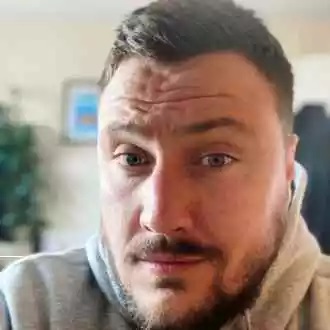The future of research into the mental health of young men is to be shaped in a study, Men Minds, led by the University of Strathclyde.
The project, with the University of Dundee and Monash University (Melbourne), will focus on three groups of adolescent young men – those who are migrants, LGBTQ+ or those who are in conflict with the law – who often face additional challenges to their mental health and wellbeing, as well as barriers to accessing mental health supports or participating in research.
The two-year study’s aims include:
- increasing understanding of how marginalised adolescents can be effectively engaged in co-producing research
- co-producing more accessible research methods for adolescent young men
- co-producing new knowledge and redefining concepts relating to adolescent marginalised masculinities, help-seeking, wellbeing and mental health
- engaging with a wide range of non-academic partners to ensure that policy and practice change leads to long-lasting real-world impact.
Dr Nina Vaswani, a Research Fellow in Strathclyde’s Children and Young People’s Centre for Justice (CYCJ), who is leading the study, said:
“Mental health is one of the main challenges that marginalised young men face but their mental health is less well understood because of the barriers they face to participating in research. There can also be barriers to service provision, which may not be culturally designed to meet their needs.
“We’re aiming to work with young men to increase knowledge about what are suitable research methods and suitable interventions for them. It’s about creating an environment in which we can explore these ideas, to make information more inclusive and to support young men to lead on developing better research.
“The knowledge that we will gain from having more accessible research methods will also feed into service provision, practice and policy. Our non-academic partners will help with translating this new knowledge into tangible change for young men.”
The project is funded by the Medical Research Council (MRC), in collaboration with the Arts and Humanities Research Council (AHRC) and Economic and Social Research Council (ESRC), all of which are part of UKRI (UK Research and Innovation).
Case Study

Iain Corbett is about to join CYCJ as a Participation Advisor and he previously was a member of CYCJ’s Executive Governance Group. Iain has been very successful in his university studies and in his youth and community work, but he often draws upon his lived experience of the justice system as a young man to help others understand the issues involved.
“It was a difficult time, I could see my peers around me were also struggling. I had friends who died, through suicide and through drink-driving, while others went to prison. I knew I couldn’t go on like this and started to guide myself away, not from the people but to disengage from that behaviour. I looked at friends and peers who weren’t actively involved in this and at how they were going through life.
Here, he explains how some difficult experiences in his childhood affected his mental health and his subsequent behaviours:
“I grew up in a low-income family and in my teens, I had three family bereavements in quick succession, and it really affected my mental health. I don’t see it as an excuse but after this happened, my behaviour began to spiral. I ended up with some convictions for minor offences but after my first conviction, I found I didn’t really care about the others I got. I knew that what I was doing wasn’t right but I didn’t think about any repercussions.
“I started to apply for a lot of jobs but got nowhere, It was frustrating to get knocked back but I took any work I could get, some of it voluntary or unpaid – I did some labouring and worked in a bakery. My parents were desperate for me to get involved in something but I wasn’t interested in football or youth clubs – then I got into youth theatre, which I found a real, cathartic release. “
“That was 15 years ago and I’ve been able to put all that behind me. I’ve always tried to extract learning from any situation I’m in but I also feel lucky that I had these opportunities and support to improve my situation and my mental health.”
“I would advise young people in the situation I was once in to take ownership of their situation and put their experiences into context. But there is always someone who you can talk to or go to for help – don’t be afraid to ask”